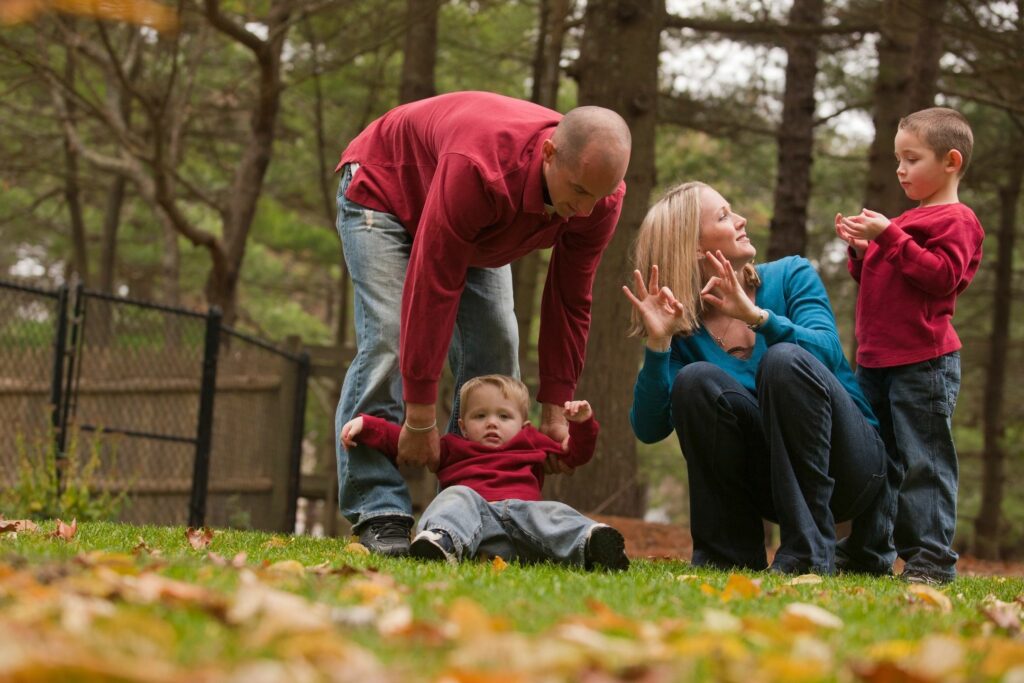
When it comes to parenting, most of us frequently question if we are doing it right. But, we won’t really be able to tell for a long time- a time when our children are old enough to be parents.
7 Signs You Are A Good Parent
Modern parents take their duty as a parent quite seriously, and they want to do it right. While this is a telling sign that things are going in the right direction, here are a few other signs showing you are a good parent:
Their Basic Necessities are Met
The primary responsibility of every parent is to offer their child food, shelter and clothing. These are your child’s basic material needs.
When it comes to emotional needs, your child requires love and safety. Love often comes naturally in a parent-child bond.
As a parent, you should also be striving to offer the most secure environment that you can offer. This means security against any kind of abuse: physical, emotional and sexual.
Your child also needs a good education, which doesn’t always mean an expensive school it just needs to be able to provide your child with quality information. Whether you home school or send him to public/private school, you are offering him a chance to acquire knowledge and learn new skills.
When parents meet their child’s basic needs, they give them the environment to thrive and blossom into their best potential.
They Come To You With A Problem
When children are young, they come to us with the smallest things- losing a toy or when they feel hungry. As our children grow up, they try to solve their problems on their own. While good problem-solving skills are crucial for every child’s development, your child will occasionally come across a problem that is beyond the problem-solving skills he has acquired.
If your child comes to you with his problems, it shows that you are his guiding figure. He trusts you. He is comfortable talking to you because he knows you will listen to him.
They Show Emotions and Empathy
Often seeing emotions in our children puts us off. Seeing them cry or throw a tantrum might make you anxious. But every time your child shows an emotion, remember that every human shows all kinds of emotions. Don’t we feel angry, sad, or fearful at times?
In your child’s case, he is still learning to cope with their emotions. If your child is comfortable in letting you see these emotions, that’s a good sign! Not only can you now help him regulate his emotions, but it also indicates that your child is comfortable with your relationship.
Focus on positively shaping these emotions to build empathy. Relate the emotions with yourself. Explain to them how you also feel the same emotions, and how you get through them. Try simple activities to develop your child’s emotional self.

They are Happy
As an Occupational Therapist, I often come across children with suicidal tendencies. I don’t blame the parents for these emotions, but as a mother, it scares me to think of children harming themselves.
One way you can develop a happy content feeling in your child is by being happy yourself. Practice gratitude. Offer them opportunities to be happy. If you feel your child isn’t happy most of the time, I would advise consulting a therapist.
They Have Their Own Identity
Girls dressed as Elsa and boys dressed as Batman are often a rare sight when we go to a good restaurant. As parents, we are often busy enforcing rules onto our children. I let my kids choose their own outfits occasionally (even though I can’t stand the sight of another sparkly sequined top).
I have a simple rule. If it isn’t hurting or annoying something, it’s okay.
For instance, being loud in a nice restaurant will disturb others, but jumping on a muddy puddle on their way back isn’t hurting anyone. It helps our children develop their identities early in life.
They Understand Boundaries
There have been times when my children have labelled me as the bad mom. It could have been because I didn’t allow them to have an ice-cream before bedtime. Or maybe because I asked them to clean up after themselves.
While being labeled as mean or bad doesn’t feel nice, I understand that my kids need boundaries. It might not feel that way when you are enforcing the boundary, but the next time they will adjust their expectations accordingly. Explain the rules and keep them consistent.
Understanding boundaries help children help feel secure. It reduces anxiety for both the parent and the child. It prevents children from growing up into narcissistic adults. They won’t expect the world to accommodate them.
You Are Making An Effort
The fact that you read this post to the end shows that you care about your children and your responsibility as a parent. We aren’t perfect, but just trying is sometimes enough!  Bond with your child. Be a present and a loving parent for your child.
Author Bio:

Parenting Coach and Occupational Therapist, Jennifer Davis is a mother of two young children who constantly tries to be a better parent. You can catch up with her on her blog, As Kids Blossom where she offers practical advice to parents.
Social Media Channels:

 Do you want to join a fun, supportive group of women? Come on over to our supportive, loving and fun facebook group. Mamas and Coffee® is all about the REAL of womanhood. Join Us.
Do you want to join a fun, supportive group of women? Come on over to our supportive, loving and fun facebook group. Mamas and Coffee® is all about the REAL of womanhood. Join Us.
- Three ways to look after your relatives when they are getting older - July 19, 2024
- How Long Should Parents Stay After College Move-In Day? - July 16, 2024
- 3 Smart Ways To Give Better Gifts (& Make Sure They’re Loved) - July 11, 2024


This speaks to my heart. It is so easy as a parent to doubt or compare yourself. Thank you for this much needed reminder ?
🙂 Thanks for reading. So, so true! We forget and come down too hard on ourselves.